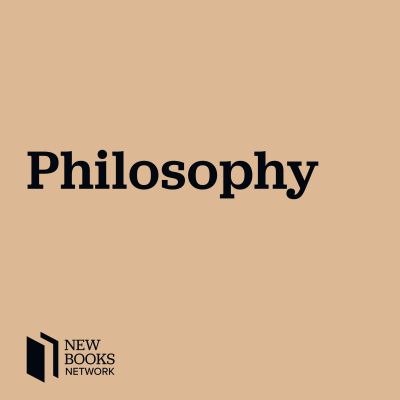Interview with Philosophers about their New Books Support our show by becoming a premium member! https://newbooksnetwork.supportingcast.fm/philosophy
Gesamtlänge aller Episoden: 16 days 21 hours 25 minutes
Chad Engelland, “Ostension: Word Learning and the Embodied Mind” (MIT Press, 2015)
How do we learn our first words? What is it that makes the linguistic intentions of others manifest to us, when our eyes follow a pointing finger to an object and associate that object with a word? Chad Engelland addresses these and related questions i...
Max Deutsch, “The Myth of the Intuitive: Experimental Philosophy and Philosophical Method” (MIT, 2015)
There is a movement in contemporary philosophy known as “experimental philosophy” or “x-phi” for short. It proceeds against the backdrop of a critique of contemporary analytic philosophy. According to the Xi-phi critique,
Margaret Morrison, “Reconstructing Reality: Models, Mathematics, and Simulations” (Oxford UP, 2015)
Almost 400 years ago, Galileo wrote that the book of nature is written in the language of mathematics. Today, mathematics is integral to physics and chemistry, and is becoming so in biology, economics, and other sciences,
Kevin Vallier, “Liberal Politics and Public Faith: Beyond Separation” (Routledge, 2014)
In a liberal democracy, citizens share political power as equals. This means that they must decide laws and policies collectively. Yet they disagree about fundamental questions regarding the value, purpose, and meaning of life.
Helen de Cruz and Johan de Smedt, “A Natural History of Natural Theology” (MIT Press, 2015)
In A Natural History of Natural Theology: The Cognitive Science of Theology and Philosophy of Religion (MIT Press, 2015), Helen de Cruz of the VU University Amsterdam and Johan de Smedt of Ghent University examine how the findings of cognitive science ...
L. A. Paul, “Transformative Experience” (Oxford UP, 2014)
We typically make decisions based on a projection of their likely outcome with respect to the things we value. We seek to maximize of enhance the things we think are good, and minimize what we think is bad.
M. Joshua Mozersky, “Time, Language, and Ontology: The World from the B-Theoretic Perspective” (Oxford UP, 2015)
Is the present time uniquely real, or do past or future equally exist? Does saying the word “now” simply express the speaker’s current position in time the way “here” expresses her current position in space? In Time, Language,
Jason Stanley, “How Propaganda Works” (Princeton UP, 2015)
Propaganda names a familiar collection of phenomena, and examples of propaganda are easy to identify, especially when one examines the output of totalitarian states. In those cases, language and imagery are employed for the purpose of shaping mass opin...
Wayne Wu, “Attention” (Routledge, 2014)
The mental phenomenon of attention is often thought of metaphorically as a kind of spotlight: we focus our attention on a particular item or task, our attention is divided or diffused when we try to text and drive at the same time,
George Sher, “Equality for Inegalitarians” (Cambridge UP, 2014)
There’s a longstanding debate in political philosophy regarding the fundamental point or aim of justice. According to one prominent view, the point of justice is to neutralize the influence of luck over individuals’ shares of basic social goods.
